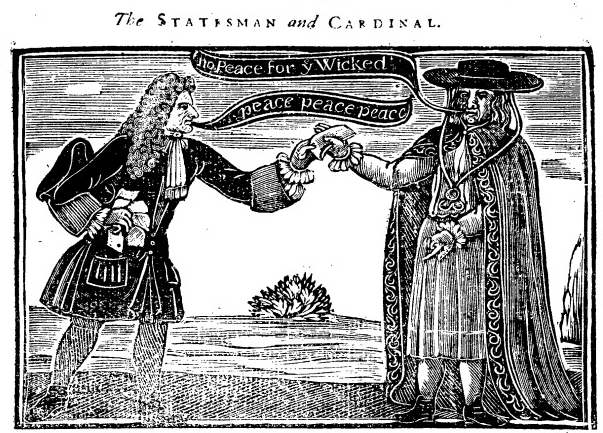
‘No Peace for the Wicked’. Woodcut from “Three Belgic fables; or, hieroglyphic ridles.” (Courtesy of ECCO.)
- Contexts of Semantic Change
Addressing history and historiography, the project compares its own new, data-driven findings to established, canonical ideas about historical conceptual change. The project also asks epistemological questions on how we can use linguistic evidence to trace historical discourses, as well as historical questions on which publications and contexts exemplified these changing concepts.
- Lexical families and Conceptual Fields
The second major research theme was linguistic, particularly semantic. Researchers looked at clusters of semantically related words, and analyse their changes in various contexts over time. This included statistically significant co-occurrences of words in particular contexts or types of discourse, as well as shifting synonymy, antonymy, and polysemy. The project traced the semantic histories of these terms, and the meanings they pick up or discard over time.
- Lexicalisation Pressure
The third major research theme of the project investigated the processes by which new words emerge to express familiar concepts, i.e. how concepts come to be expressed by new words—as well as how concepts come to be expressed by words at all. Researchers asked which conceptual fields exhibit unusual changes in the volume of terms they contain, and what the nature of these changes is.